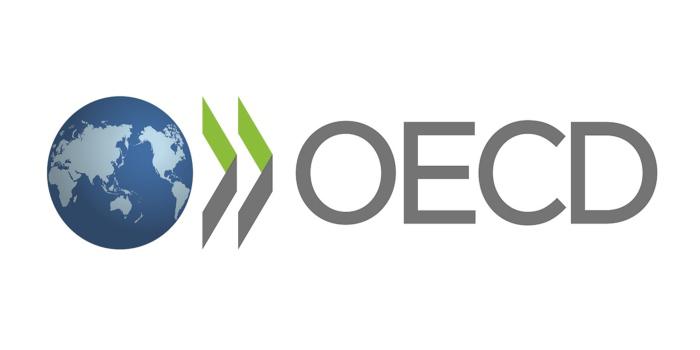History
ThepredecessoroftheOrganizationforEconomicCooperationandDevelopmentwastheEuropeaneconomyestablishedonApril16,1948bymorethantencountriesinWesternEurope.Cooperativeorganization.OnDecember14,1960,atotalof20countriesincludingCanada,theUnitedStatesandthememberstatesoftheEuropeanEconomicCooperationOrganizationsignedthe"OrganizationforEconomicCooperationandDevelopmentConvention"anddecidedtoestablishanOrganizationforEconomicCooperationandDevelopment.Aftertheconventionwasratifiedbytheparliamentsofaprescribednumberofmemberstates,the"OrganizationforEconomicCooperationandDevelopmentConvention"enteredintoforceinParisonSeptember30,1961,andtheOrganizationforEconomicCooperationandDevelopmentwasformallyestablished.
Purpose
ThepurposeoftheOECD:topromotetheeconomicandsocialdevelopmentofmembercountries,andpromoteworldeconomicgrowth;tohelpmembergovernmentsformulateandcoordinaterelevantpoliciestoimproveTomaintainarelativelystablestandardofliving,andtomaintainfinancialstability;encourageandcoordinatememberstatestoassistdevelopingcountriesintheirefforts,helpdevelopingcountriesimprovetheireconomicconditions,andpromoteeconomicdevelopmentofnon-memberstates.
MemberStates
Therearecurrently38memberstatesoftheOECD,including:
20foundingmemberstatesin1961,theyare:theUnitedStates,theUnitedKingdom,France,Germany,Italy,Canada,Ireland,Netherlands,Belgium,Luxembourg,Austria,Switzerland,Norway,Iceland,Denmark,Sweden,Spain,Portugal,Greece,Turkey.
18latermembers,theyare(yearofmembershipinparentheses):Japan(1964),Finland(1969),Australia(1971),NewZealand(1973),Mexico(1994),CzechRepublic(1995),Hungary(1996),Poland(1996),SouthKorea(1996),Slovakia(2000),Chile(2010),Slovenia(2010),Estonia(2010)),Israel(2010),Latvia(2016),Lithuania(2018),Colombia(2020),CostaRica(2020).
Development
OnJanuary11,2010,ChileformallysignedanagreementtojointheOrganizationforEconomicCooperationandDevelopment,makingitthe31stmemberoftheorganization;atthesametime,EconomicCooperationandDevelopmentTheorganizationannouncedonMay10,2010thatitagreedtoadmitEstonia,Israel,andSloveniaasnewmembers,increasingthenumberofmembersto34.ChileisthefirstSouthAmericancountrytojointheOECD,IsraelisthesecondMiddleEasterncountrytojointheOECDafterTurkey,EstoniaisthefirstformerSovietcountrytojointheOECD,andSloveniaisthefirsttojoinTheformerYugoslaviaoftheOECD.OnJuly1,2016,LatviaformallyjoinedtheOrganizationforEconomicCooperationandDevelopmentandbecameits35thmemberstate.OnJuly5,2018,LithuaniaofficiallyjoinedtheOECDandbecameits36thmemberstate.OnApril28,2020,ColombiaofficiallyjoinedtheOrganizationforEconomicCooperationandDevelopment(OECD),becomingits37thmember.OnMay15,2020,theOECDannouncedtheformalacceptanceofCostaRicaasthe38thmemberoftheorganization.
September30,2021,the60thanniversaryofthefoundingoftheOECD.
Organization
ThestaffoftheOECDSecretariatinParisshallconductresearchandanalysisattherequestofthe36memberstatesoftheOECD.Representativesofmemberstatesmeetandexchangeinformationincommitteesdedicatedtostudyingimportantissues.TheCouncilisthedecision-makingbodyoftheOECD.
Committee
Representativesofthirty-fivememberstatesmetintheprofessionalcommitteestomakerecommendationsandrecommendationsonspecificpolicyareas,suchaseconomics,trade,science,employment,education,andfinancialmarkets.Reviewtheprogressmadeintheseareas.Thereareabout200committees,workinggroupsandexpertgroupsintheOECD.
Everyyear,morethan4,000officialsfromgovernmentdepartmentsofmemberstatesparticipateintheOECDcommitteemeetings,requesting,deliberatingandplayingaroleintheworkcarriedoutbytheOECDSecretariat.Evenintheirowncountry,theycanobtainOECDdocumentsonlineandexchangeinformationthroughspecialnetworks.
Council
TheCouncilisthedecision-makingbodyoftheOECD,composedofonerepresentativefromeachmembercountryandtheEuropeanCommission.TheCouncilregularlyconvenesambassador-levelmeetingsofmemberstatestotheOECDandmakesdecisionsthroughcomprehensiveconsensus.TheCouncilholdsaministerialmeetingeveryyeartodiscussimportantissuesandsetprioritiesfortheworkoftheOECD.TheworkassignedbythecouncilisdonebythevariousdivisionsoftheOECDsecretariat.
Secretariat
TheOECDsecretariatislocatedinParis,andmorethantwothousandstaffsupporttheworkofthecommittee.Morethan700economists,lawyers,scientistsandotherprofessionalsareengagedinresearchandanalysis.Theyaremainlydistributedintwelvebusinessdivisions.
Theworkofthesecretariatisparalleltotheworkofthecommittee.Eachdepartmentservesoneormorecommittees,aswellasworkinggroupsandsub-committees.
Thesecretariatisledbyasecretary-generalandfourdeputysecretary-generalsassistinthework.TheSecretary-GeneralisalsotheChairmanoftheCouncilandisanimportantlinkbetweenthedelegationsofthememberstatesandtheSecretariat.ThecurrentSecretary-GeneralistheMexicanAngelGurría.
EnglishandFrencharethetwoofficialworkinglanguagesoftheOECD.TheemployeesoftheOECDareallcitizensofmemberstates,buttheyworkasinternationaladministratorsduringtheirtenureattheOECDanddonotrepresenttheirrespectivecountries.TheOECDhasnoquotarestrictionsonthecountryofstaff.Itonlyemployshigh-qualitypersonnelfromvariouscountrieswithexperienceindifferentfieldsinlinewiththeequalopportunitypolicy.
Fundingsources
TheOECDisfundedbyits35memberstates.Theproportionofcountries’contributionstotheOECD’sannualbudgetisdeterminedbasedonaformularelatedtothesizeoftheireconomies.ThelargestcontributoristheUnitedStates,whichprovidesaquarteroftheOECDbudget,followedbyJapan.Withtheapprovalofthecouncil,countriescanalsoprovideindividualfundingforspecialactivitiesorprojectsthatarenotincludedinthemainbudget.
TheannualbudgetandworkplanoftheOECDaredeterminedbytheCouncil.ThecurrentannualbudgetoftheOECDismorethan300millioneuros.
Functionaloperation
The50thanniversaryoftheOECD(2photos)
1.UnliketheWorldBankandtheInternationalMonetaryFund,theTheCooperativeOrganizationdoesnotprovidefundassistance.Itisbasedonpolicyandanalysistoprovideaplacetothinkanddiscussissuestohelpgovernmentsformulatepolicies.Thesepoliciesmayleadtoformalagreementsbetweenmembergovernmentsorbeimplementedindomesticorotherinternationalsituations.Thisroleisveryimportantformemberstates.Thisefficientmechanismbeginswithdatacollectionandanalysis,andthendevelopsintoacollectivediscussionofpolicies.2.ThecoreoftheeffectivenessoftheOECDisthroughbilateralintergovernmentalreview,multilateralsupervisionandparallelpressuretoencouragememberstatestoabidebyrulesorcarryoutreforms.Itisthebehind-the-scenesworkdonebytheOECDtoassessthecostofagriculturalsubsidies,whichhelpedtoinjectpoliticalimpetusintopolicymeasuresandreduceunemploymentforlaterinterdisciplinaryresearchoncuttingback.Identifyingfactorsthathinderefficiency,growth,andinnovationandtheirimpactcanoftensupportgovernmentsinmakingfirmpoliticaldecisionstomaketheireconomiesmoreefficient.TheanalysisandconsensusworkcarriedoutbytheOECDinthefieldoftradeinservicesisveryimportantandpromotedthesuccessfulconclusionoftheUruguayRound.Sometimes,suchdiscussionswillgraduallydevelopintonegotiationswithintheOECD,wherememberstatesreachanagreementontherulesofthegameforinternationalcooperation.Thesenegotiationsmayleadtoformalagreements,includingagreementsonanti-bribery,exportcredit,capitalflows,andforeigndirectinvestment,andmayalsoresultin,forexample,internationaltaxationstandardsandmodels,orrecommendationsandguidelinesonenvironmentalwork.
3.TheworkingmethodoftheOECDincludesanefficientmechanism,whichbeginswithdatacollectionandanalysis,andthendevelopsintoacollectivediscussionofpolicies,andthenreachesdecision-makingandimplementation.Bilateralreviewbetweengovernments,multilateralsupervision,andparallelpressuretoencouragememberstatestocomplywithrulesorcarryoutreformsareatthecoreoftheeffectivenessoftheOECDinareassuchastheAnti-BriberyAgreementforinternationalcommercialtransactions.TheOECD'sanalysisofthecontributionoftheinformationtechnologyrevolutiontoeconomicdevelopmenthashelpedthegovernmenttoformulateeconomicpolicies,anditsresearchonthecausesandcountermeasuresofunemploymentcanhelpinjectpoliticalmomentumintopolicymeasurestoreduceunemployment.TheimportantanalysisandcomprehensiveworkcarriedoutbytheOECDinthefieldoftrade,suchastradeinservices,haspromotedthesuccessofinternationaltradenegotiations.
4.DiscussionsintheOECDsometimesgraduallydevelopintonegotiations,wherememberstatesreachanagreementontherulesofthegameforinternationalcooperation.Thesenegotiationsmayleadtoformalagreements,suchasagreementsonanti-bribery,exportcredits,orcapitalflows,andmayalsoformstandardsandmodelsforinternationaltaxation,orrecommendationsandguidelinesoncompanymanagementorenvironmentalwork.
5.TheworkoftheOECDisbecomingmoreandmoreinterdisciplinary.TheOECD'sworkonsustainabledevelopmentandits"WorldFuturePlan"aimedatidentifyingemergingpolicyissuesasearlyaspossiblearemultidisciplinaryresearch.TheOECD'sresearchworkonpopulationageingincludesnotonlytheparticipationofmacroeconomicsexperts,taxationandbusiness,andhealthcareexperts,butalsolabormarketandsocialpolicyanalysis.Environmentalandeconomicanalysiscannolongerbeconductedinisolation.Tradeandinvestmentarecloselyrelated.Biotechnologyinvolvesagriculture,industry,science,environment,anddevelopmentpolicies.Theassessmentoftheimpactofglobalizationactuallycoverseveryareaofpolicyanalysis.
6.ThepersonalprivacyprotectionprinciplesformulatedbytheOrganizationforEconomicCooperationandDevelopmentin1980include:theprincipleofinformationcollectionrestrictionandtheprincipleofinformationquality,theprincipleofindicatingpurposeandtheprincipleofuserestriction,theprincipleofsecurityprotectionandtheprincipleofopenness,Theprincipleofindividualparticipationandtheprincipleofresponsibility.
Publishinganddissemination
Publicationsinclude"OECDActivities"(AnnualReportoftheSecretary-General);"OECDObserver"(bi-monthly);"FinancialStatistics";OrganizationalEconomicResearch(annualreportsofvariouscountries);ForeignTradeStatistics(monthly);OECDEconomicOutlooktwiceayear;"MainEconomicIndexes"(monthly);"DevelopmentAidProgressandCountermeasures"(annualreport);Outlook(AnnualReport);EnergyBalance(Quarterly);FinancialMarketTrends(3issuesperyear);HigherEducationManagement(3issuesperyear);OECDEmploymentOutlook(Annual);Science,TechnologyandIndustryReview(2issuesperyear),andvariousprofessionalreports,workreports,etc.
AnypubliccanobtainOECDinformation,analysisanddatacoveringavarietyoffieldsfromtheOECDwebsite.
LeadingIndex
Meaning:Atoolforpredictingbusinessactivitiesintheworld'slargesteconomy.

Releasetime:noon(ContinentalEuropeantime);thedataisreleasedonthefirstFridayofthefirstweekofeachmonth,andtheactivityisreportedtwomonthsago.(Forexample,theJanuaryreleasereportsleadingindicatorsforNovember.)
Frequency:Onceamonth.
Source:OrganizationforEconomicCo-operationandDevelopment(OECD)
Revision:Lastmonth’sdataisusuallyrevisedinanewrelease.
Becausetheleadingeconomicindicatorsareveryforward-looking,investorsanddecisionmakersliketofollowtheseindicators.Fromaglobalperspective,themostfamousresearchistheOECD’sSyntheticLeadingIndex(CLI).ThisinternationalorganizationwithParisastheprospectcalculatesleadingeconomicindicatorsfor23memberstatesand7differentgeographicregions(thereare30memberstatesintheOECD).TheseregionsincludealltheOECDregions,theGroupofSevenIndustrialCountries,theNorthAmericanFreeTradeArea,theEuropeanOECD,theEuropeanUnion,theEurozoneandthefourmajorEuropeaneconomies(seeTable4.8).Althoughsomecountrieshavetheirownleadingindicators,theOECDindexiswell-known,andinvestmentmanagersanddecisionmakersareinterestedinit.
LatestNews
TheOrganizationforEconomicCooperationandDevelopmentmadeaforecastfortheworldeconomy:agrowthof3.3%in2017
OnMarch7,2017,theEconomicCooperationandDevelopmentTheOrganizationforDevelopment(OECD)madeaforecastfortheworldeconomy:growthof3.3%in2017and3.6%in2018,thelargestincreasesince2011.Theorganizationbelievesthatthecurrentinternationaltradedownturn,weakinvestment,andprotectionismarethemainobstaclestothedevelopmentoftheworldeconomy.Ifcountriesadoptmoreproactivefiscalandtaxationpolicies,theworldeconomyisexpectedtomaintainamoderategrowthrate.
OECDbelievesthat,affectedbyTrump'shugeinvestmentininfrastructureandotherpolicies,theUSeconomicgrowthratewillincreasefrom1.6%in2016to2.4%in2017and2.8%in2018.TheforecastfortheUKeconomyin2017hasbeenraisedfrom1.2%to1.6%.TakingintoaccountfactorssuchasrisinginflationrestrictingconsumptionandcompaniesthatwillnotincreaseinvestmentduetouncertaintyafterBrexit,theUKeconomywillgrowby1%in2018.TheEUisexpectedtogrowby1.6%consecutivelythisyearandnext.Intermsofemergingeconomies,China’sdebtburdenhasincreasedrisks.GDPwillfallfrom6.7%in2016to6.5%in2017and6.3%in2018.Indiawillincreasefrom7%in2016to7.3%in2017and7.7%in2018.TheBrazilianeconomyshowednegativegrowthin2017,andwillhavezerogrowthin2018,andwillgrowby1.5%in2019.
OECDlowersits2014globalGDPgrowthforecast
ThereportreleasedbytheOrganizationforEconomicCooperationandDevelopment(OECD)onNovember19showsthatthe2014globalGDPgrowthforecastisloweredto3.6%,thepreviousestimateintheOECDreportinMaywas4.0%.AccordingtotheOECD,themainreasonforthisreductionisthattheeconomicsituationofdevelopingcountrieshasgraduallyweakened.Atthesametime,theOECDpredictsthattheglobaleconomywillgrowby2.7%in2013.
ThereportshowsthattheOECDhasalsoloweredtheeconomicgrowthexpectationsofsomecountries/regionsin2014:
Decreasethe2014globalGDPgrowthforecastto3.6%,whichisexpectedinMay4.0%;
DecreaseChina’s2014GDPgrowthforecastto8.2%,whichwasexpectedtobe8.4%inMay;
DecreaseGermany’s2014GDPgrowthforecastto1.7%,MayThecurrentestimatewas1.9%;
The2014GDPgrowthforecastfortheEurozonewasloweredto1.0%,anditwasexpectedtobe1.1%inMay.
TheOECDhasraisedits2014economicgrowthforecastsforsomecountries:
UpgradedtheUK’s2014GDPgrowthforecastto2.4%and1.5%inMay;
>UpgradeFrance’s2014GDPgrowthforecastto1.0%and0.8%inMay;
UpgradeJapan’s2014GDPgrowthforecastto1.5%and1.4%inMay;
UpgradetheU.S.GDPgrowthforecastin2014to2.9%,from2.8%inMay.
SpeakingoftheEuropeaneconomy,theOECDstatedthattheEuropeanCentralBank(ECB)policymustbemaintainedataveryaccommodativestate,andtheriskofdeflationintheeurozonehasincreased.Atthesametime,italsourgestheEuropeanCentralBanktorespondtotheimplementationofnegativeinterestratepoliciesandassetpurchases.Beopen.
Inaddition,theOECDstatedthattheFederalReserve(Fed)cutsinquantitativeeasing(QE)maybringriskstodevelopingeconomies.Atthesametime,itisexpectedthattheFedmayreduceitsbondpurchasesin2014andraiseitsbenchmarkinterestratein2015.TheOECDstatedthatthefiscaluncertaintyintheUnitedStatesisamajorhiddendangerthatthreatenstherecoveryoftheglobaleconomy.TheOECDurgestheUnitedStatestodevelopalong-termfiscalplan.
OrganizationforEconomicCooperationandDevelopment(OECD)updateditseconomicassessmentreportonMarch11,2014:
Theslowdowninactivitiesinmajoremergingmarketswillleadtomoderategrowthoftheglobaleconomyatbest,mostofwhicharedevelopedTheeconomywillreboundinthenextfewyears,buttheFedmustbecautiousinreducingQEandshowitsintentiontominimizetheimpactondevelopingcountries.
TheOECDalsowarnedthatifthereisadebtpaymentproblem,Chinamayexperiencea"sharpdecline."
TheOECDpointedoutthatincreasingfinancialmarketvolatilityandcapitaloutflowsfromemergingeconomiesareoneofthebiggestthreatstoglobalrecovery.
TheOECDbelievesthatsomeemergingeconomieshaveexposedtheirweaknessesduetocapitaloutflows,andthegrowthmomentumisexpectedtobegreatlyreduced.
ItisexpectedthateconomiessuchasBrazil,India,SouthAfricaandTurkeywillbeforcedtoraiseinterestratestoavoidtheimpactofcapitaloutflows.
Asforadvancedeconomies,theOECDbelievesthatthecoldwinterintheUnitedStatesandtheincreaseinconsumptiontaxinJapanareonlyshort-termfactors,andtheimpactisonlyone-off.
ConsideringtheuncertaintyoftheUSrecoveryandthepossibleimpactofQEreductionsondevelopingeconomies,theOECDbelievesthattheFedshouldgraduallywithdrawfromQEinthenexttwoyears.
TheOECDpredicts:
·Thegrowthofmajordevelopedeconomiesin2014willbelowerthaninthesecondhalfof2013,butitisclearlybetterthantheendofthepreviousyearandthebeginningof2013.
·Takingintoaccounttheimpactofbadweather,thegrowthforecastfortheUnitedStatesinthefirstquarterhasbeenreducedfrom3%to1.7%,whichisobviouslylowerthanthe2.4%inthepreviousquarter.
·RaiseJapan’sfirst-quartergrowthforecastfrom3.1%to4.8%,asconsumersareexpectedtoshopbeforetheconsumptiontaxhikeonApril1,2014.
·RaisethefirstquartergrowthforecastfortheEurozonefrom1%to1.9%.
OnAugust11,2014,theOrganizationforEconomicCooperationandDevelopmentreleasedacomprehensiveeconomicleadingindexreport,showingthattheoveralleconomicgrowthmomentumoftheregionscoveredbytheOECDremainedstable.
Thereportsaidthatoverall,therevisedoverallleadingindexoftheOECDregionhasremainedat100.5fornineconsecutivemonthssinceOctober2013,showingthemomentumofeconomicgrowth.TheoverallleadingindexoftheGroupofSevencountriesremainedat100.6pointsfromJanuarytoMay2014,anddroppedslightlyto100.5pointsinJune.TherevisedoverallleadingindexoftheEurozonehasrisenmonthbymonthsinceOctober2012,reaching101.0pointsinFebruary2014,andcontinuinguntilJune2014,showingthateconomicgrowthintheEurozonehasstabilized.Accordingtothereport,thegrowthmomentumoftheFrencheconomycontinuestobestable,theItalianeconomycontinuestoshowanupwardturningpoint,andtheGermaneconomicleadingindexhasdeclinedmonthbymonthsinceFebruary2014,indicatingaslightslowdowningrowth.AsofJune,therevisedleadingindexoftheUnitedStatesremainedat100.5pointsfortwoconsecutivemonths,theleadingeconomicindexoftheUnitedKingdomwas101.0pointsinJune,andtheleadingindexofJapandeclinedmonthbymonthsinceDecember2013,reaching100.1pointsinJune2014.
ThereportalsoshowsthattherevisedoverallleadingindexofChina,India,SouthKorea,Japan,andIndonesiahasstabilizedat99.4pointsinthepastfivemonths,indicatingthattheeconomicgrowthrateoftheregionhasstabilized.Amongtheemergingeconomies,theleadingindexesofChinaandRussiainJunewere99.0pointsand99.8points,respectively,closetothebenchmarklevel;whiletheleadingindexesofBrazilwere98.9points,bothslightlylowerthanthebenchmarklevel.
TheOECDregularlypublishesthecomprehensiveeconomicleadingindicatorsofitsmembercountriesandasmallnumberofnon-membercountriestopredicteconomicdevelopmenttrendsabouthalfayearinadvance.
DatareleasedbytheOrganizationforEconomicCooperationandDevelopment("OECD")showedthattheunemploymentrateofitsmembercountriesremainedat6.8%inAugust2015,whichwas1.3pointslowerthanthepeakunemploymentinJanuary2013.percentagepoint.
Accordingtostatistics,theunemploymentrateintheEurozonestabilizedat11.0%inAugust.Inthesameperiod,theunemploymentrateintheUnitedStatesfellby0.2percentagepointsfromthepreviousmonthto5.1%,theunemploymentrateinJapanroseby0.1percentagepointsto3.4%,andtheunemploymentrateinCanadaroseby0.2percentagepointsto7.0%.
Statisticsshowthattheunemploymentrateamongyoungpeople(15to24yearsold)intheareascoveredbytheOECDhasdroppedto13.7%inAugust,thelowestlevelsinceOctober2008.However,thetotalnumberofunemployedyoungpeopleintheOECDareainAuguststillreached10million,accountingfor23.9%ofthetotalnumberofunemployedintheOECDarea.
Internationaltaxreform
Internationaltaxreformframework
Oneofthepillarsoftheinternationaltaxreformframeworkisthepartialtaxationoflargemultinationalcorporations.Therightisredistributedfromtheplaceofbusinessregistrationtotheplaceofbusinessandprofit;theotherpillaristheestablishmentoftheworld’slowestcorporatetaxrate,andtheendofnationalcorporatetaxcompetition.
TheOECDpredictsthatthroughthetwo-pillarinternationaltaxreformframework,thetaxationpowerofmorethan$100billioninprofitswillbetransferredtomarketjurisdictions;atthesametime,iftheglobalminimumcorporatetaxrateissetnotlessthan15%,theworldwilladdabout150billionU.S.dollarsintaxeseachyear.
TheOECDplanstocompletetheremainingtechnicalworkofthetaxreformframeworkinOctober2021,andimplementtheplanin2023.
Internationaltaxreformnegotiations
TheOrganizationforEconomicCooperationandDevelopment(OECD)hascoordinatedinternationaltaxreformnegotiationsfornearlyadecade,aimingtoensurethatlargemultinationalcompaniesPaytaxesinbusinessandprofitably,whileensuringthecertaintyandstabilityoftheinternationaltaxsystemtoadapttoeconomicglobalizationanddigitalization.OECDSecretary-GeneralMatthiasColemansaidthattheinternationaltaxreformframeworkisnottoeliminatetaxcompetition,buttosetlimitsoncompetitionandtakeintoaccounttheinterestsofallparties,includingsmalleconomies.
Coordinatingthenegotiationprogress
OnJuly1,2021,theOECDissuedanannouncementstatingthatasofnow,itstwo-pillarinternationaltaxreformTheframeworkhasbeensupportedby130countriesandjurisdictions.
